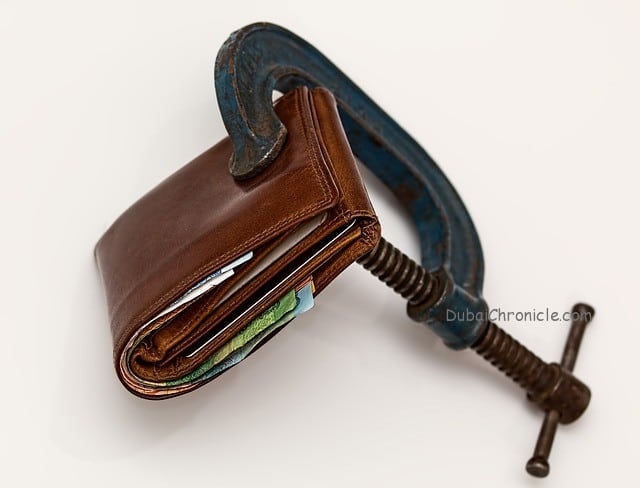
Spreading economic recession and low crude prices have undeniably impacted many people based in oil producing and exporting countries. The complex nature of aiming at expansion but facing liquidity limits economy leaves many consumers feeling confused and powerless. While it’s important for people to try to understand what’s going on, it is even more important that they empower themselves to take good care of their personal circumstances – their monthly income, expenses, and investments.
The most important thing to remember is that you can always control your budget and spending. The task is not always easy, but the basic fundamentals of smart money management still apply no matter how confusing things get on a national level. Changing your spending habits should be the first, and maybe the most difficult, undertaking your family will face while trying to survive this economic recession.
Living as though nothing has changed is the number one mistake people make during challenging times and can lead to seemingly insurmountable debt.
It is clear that the current economic downturn is not going to be a temporary struggle. Taking steps to safeguard your family’s budget will be critical in ensuring your ability to weather the economic recession.
Re-evaluate your habits. If your income or expenses have changed, your spending must also. Old habits are hard to break, but your family may need to forgo some traditions like eating out on Friday night, or Saturdays movies, until your financial situation changes.
Little changes count. Even small changes will have an impact, and more importantly, will set the stage for changing your habits. Your family will be stronger financially in the long run, and once you get on the right track, you can begin saving for something great (like a vacation, or new car, etc.).
Be a smart shopper. Always shop with a list and take cash so that you can’t overspend. Use coupons only if you planned to purchase the item anyway.
Pay your bills on time. Late fees and over-the-limit charges can quickly add up to a debt problem. Additionally, many creditors have raised their rates and have even closed accounts as penalties for late payments.
Deal with big issues. If you have large, looming financial issues, such as unpaid debt, it is time to deal with them head-on. Contact your creditors and make acceptable repayment arrangements. Implementing a plan to remove these stresses from your life will be good for your mental and financial health.
Expect the unexpected. Strive to establish an emergency savings account equal to at least three months of your income. If this goal seems too lofty, try having a small amount automatically deducted from your paycheck into a savings account. As they say, out of sight, out of mind – you won’t spend it if it’s not in your checking account.
Finally, today’s economic climate may leave you reluctant to put your money in long-term investments, but economic crisis for some means fortunes for others.




































